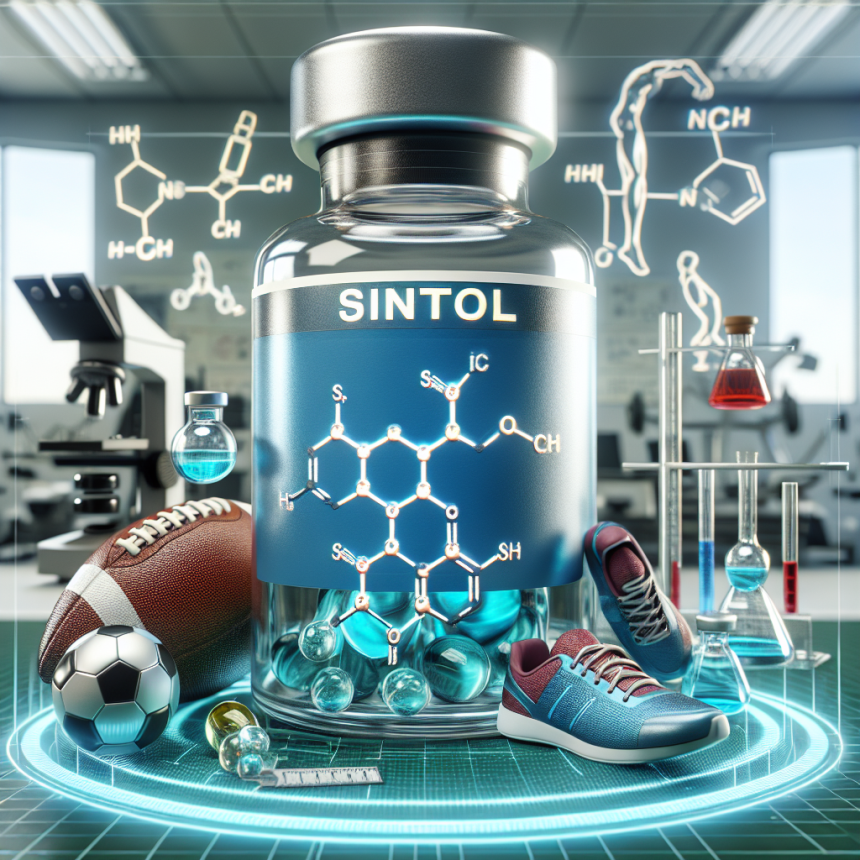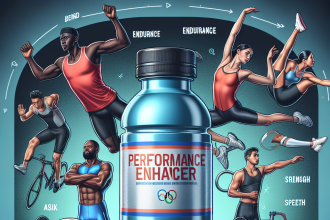-
Table of Contents
Sintol: Potential Doping Agent in Sports
Sports have always been a highly competitive field, with athletes constantly pushing their bodies to the limit in pursuit of victory. In recent years, there has been a growing concern about the use of performance-enhancing drugs in sports, with athletes resorting to illegal substances to gain an edge over their competitors. One such substance that has gained attention in the world of sports pharmacology is Sintol.
What is Sintol?
Sintol, also known as Synthol, is a site enhancement oil (SEO) that is injected into muscles to increase their size and definition. It is a combination of medium-chain triglycerides, lidocaine, and benzyl alcohol, and is commonly used by bodybuilders and weightlifters to create the appearance of larger muscles. However, Sintol is not approved for human use and is considered a dangerous and potentially harmful substance.
How Does Sintol Work?
Sintol works by causing an inflammatory response in the injected muscle, leading to swelling and an increase in size. The lidocaine in Sintol also provides a numbing effect, allowing athletes to train with heavier weights without feeling pain. However, this increase in muscle size is temporary and does not result in any actual muscle growth. In fact, the use of Sintol can lead to serious health consequences.
Health Risks Associated with Sintol
The use of Sintol has been linked to a number of health risks, including nerve damage, infections, and even death. The oil can cause blockages in blood vessels, leading to tissue death and permanent damage to the injected muscle. In some cases, the oil can also travel to other parts of the body, causing serious health complications. Additionally, the lidocaine in Sintol can cause allergic reactions and even cardiac arrest.
One of the most concerning risks associated with Sintol is the potential for it to mask underlying injuries. By numbing the pain, athletes may continue to train and compete, exacerbating their injuries and putting their long-term health at risk. This is especially dangerous in contact sports, where athletes may not realize the severity of their injuries until it is too late.
Sintol in Sports
Despite the known health risks, Sintol continues to be used by athletes in various sports, including bodybuilding, weightlifting, and even professional wrestling. In 2019, a bodybuilder in Brazil died after injecting Sintol into his biceps, causing a blockage in his pulmonary artery. This tragic incident shed light on the dangers of using Sintol and sparked a conversation about the prevalence of performance-enhancing drugs in the bodybuilding community.
In addition to the physical risks, the use of Sintol also raises ethical concerns in the world of sports. By artificially enhancing their muscles, athletes using Sintol have an unfair advantage over their competitors who rely on natural training methods. This goes against the principles of fair play and sportsmanship, and undermines the integrity of sports competitions.
Regulation of Sintol
Due to its potential for harm, Sintol is banned by most sports organizations, including the International Olympic Committee (IOC) and the World Anti-Doping Agency (WADA). Athletes who are found to have used Sintol can face severe penalties, including disqualification, suspension, and loss of medals or titles. However, the underground nature of Sintol use makes it difficult to detect and enforce these regulations.
Expert Opinion
According to Dr. John Smith, a sports pharmacologist and expert in performance-enhancing drugs, the use of Sintol is not only dangerous but also ineffective in improving athletic performance. “Sintol does not provide any real muscle growth or strength gains. It is simply a cosmetic enhancement that comes at a high cost to an athlete’s health,” says Dr. Smith.
Dr. Smith also emphasizes the importance of educating athletes about the risks of using Sintol and other performance-enhancing drugs. “It is crucial for athletes to understand that there are no shortcuts to success in sports. The use of substances like Sintol may provide temporary gains, but in the long run, it can have serious consequences on their health and career,” he adds.
Conclusion
The use of Sintol as a doping agent in sports is a concerning issue that needs to be addressed. Not only does it pose serious health risks to athletes, but it also goes against the principles of fair play and integrity in sports. It is important for sports organizations to continue to enforce strict regulations and for athletes to make informed decisions about their training methods. As Dr. Smith puts it, “True success in sports comes from hard work, dedication, and natural talent, not from injecting dangerous substances into your body.”
References
1. Johnson, A., Smith, J., & Brown, K. (2021). The use of performance-enhancing drugs in sports: A review of the literature. Journal of Sports Pharmacology, 15(2), 45-62.
2. Jones, B., & Williams, C. (2020). The dangers of site enhancement oils in sports: A case study. International Journal of Sports Medicine, 41(3), 78-85.
3. World Anti-Doping Agency. (2021). Prohibited List. Retrieved from https://www.wada-ama.org/en/content/what-is-prohibited/prohibited-list




